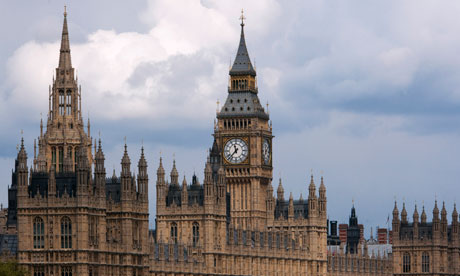
From U.K. House of Commons: The evidence we received leaves us concerned that with the Armed Forces now so dependent on information and communications technology, should such systems suffer a sustained cyber attack, their ability to operate could be fatally compromised. Given the inevitable inadequacy of the measures available to protect against a constantly changing and evolving threat, and given the Minister for the Cabinet Office’s comment, it is not enough for the Armed Forces to do their best to prevent an effective attack. In its response to this report the Government should set out details of the contingency plans it has in place should such an attack occur. If it has none, it should say so – and urgently create some. . . .
We appreciate the MoD witnesses’ frank assessment of the work still to be done on securing its supply chain and industrial base. Despite this frankness, the witnesses gave the impression that they believed that an admission of the problem took them close to resolving the problem. It does not. It is imperative that we see evidence of more urgent and concrete action by suppliers to address this serious vulnerability, and of energy and determination on the part of the MoD to enforce this action. This evidence should include, for example, efforts to improve the technical processes involved, identification of adequate resources, and provision of training to address the human aspects of good cyber defence.
Military activity in cyberspace – conceptual framework
Events in cyberspace happen at great speed. There will not be time, in the midst of a major international incident, to develop doctrine, rules of engagement or internationally-accepted norms of behaviour. There is clearly still much work to be done on determining what type or extent of cyber attack would warrant a military response. Development of capabilities needs to be accompanied by the urgent development of supporting concepts. We are concerned that the then Minister’s responses to us betray complacency on this point and a failure to think through some extremely complicated and important issues. We recommend that the MoD makes development of rules of engagement for cyber operations an urgent priority, and that it should ensure that the necessary intelligence, planning and coordination functions are properly resourced.
We recommend that the Government ensure that civil contingency plans identify the military resources that could be drawn upon in the event of a large-scale cyber attack, such as additional staff, planning resources or technical expertise. In its response to this report the Government should set out what work it is doing to identify the reliance of the Armed Forces on the integrity and resilience of the Critical National Infrastructure, the steps it has taken to ensure that the CNI will remain sufficiently robust to meet the needs of the Armed Forces and its contingency plans for the event that any relevant part of the CNI should fail. . . .
Relationships with allies
We welcome the Government’s decision to play a more active role in the future work of the NATO Cyber-Defence Centre of Excellence. We ask that the MoD keeps Parliament fully apprised of future decisions regarding participation in this and other international co-operative arrangements. . . .
Cyber-security across Government
It is our view that cyber-security is a sufficiently urgent, significant and complex activity to warrant increased ministerial attention. The relevant minister should have the authority to direct government departments to take action if they are not performing as required. We also consider that the National Security Council should dedicate time, with the relevant minister in attendance, to consider cyber-security matters on a more regular basis. . . .
Conclusion
The cyber threat is, like some other emerging threats, one which has the capacity to evolve with almost unimaginable speed and with serious consequences for the nation’s security. The Government needs to put in place – as it has not yet done – mechanisms, people, education, skills, thinking and policies which take into account both the opportunities and the vulnerabilities which cyber presents. It is time the Government approached this subject with vigour.
Excerpts from "Defense and Cyber-Security" report by the Defense Committee of the House of Commons. (photo: Graham Turner/Guardian)
Image: guardian%201%2010%2013%20Houses-of-Parliament-007.jpg
